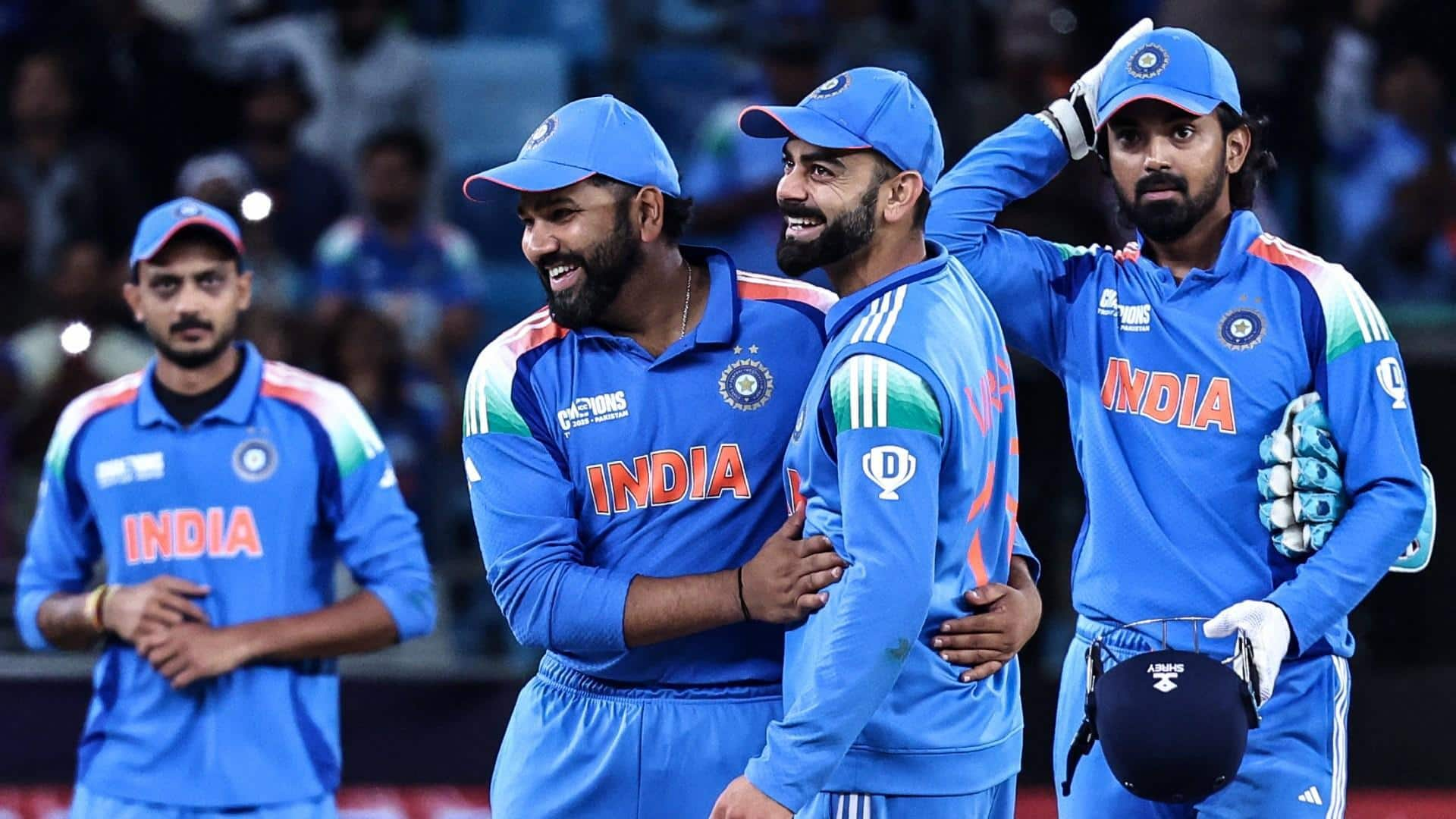
How fantasy sports ban could cost cricket ₹10,000 crore annually
What's the story
The Indian government's recent ban on real-money fantasy sports games is set to have a major impact on the cricketing economy. The move has already seen Dream11 exit as Team India's jersey sponsor and could result in losses of ₹8,000-10,000 crore annually, according to Cricbuzz. This will leave a long-lasting dent in cricket's commercial ecosystem. Last week, the Union Cabinet cleared the Promotion and Regulation of Online Gaming Bill, 2025.
Player impact
Cricketers' brand deals under threat
The ban is set to affect individual cricketers who had endorsement deals with fantasy gaming companies. Senior players like Rohit Sharma, Jasprit Bumrah, KL Rahul, Rishabh Pant, Hardik Pandya, and Krunal Pandya were associated with Dream11. Other top players like Shubman Gill, Mohammed Siraj, and Ruturaj Gaikwad had similar contracts with My11 Circle. Virat Kohli endorsed MPL while MS Dhoni promoted Winzo among other brands.
Financial impact
Financial impact on players
The financial impact of the ban varies among players. While stars like Kohli may not be affected much, others could feel the pinch. Notably, losing My11 Circle alone means a 33% cut in brand income for Siraj. Lesser-known cricketers could face a total wipeout of their endorsement deals due to this ban. As per Cricbuzz, Indian cricketers could lose between ₹150-200 crore a year owing to this ban.
Franchise impact
IPL and smaller tournament sponsorships at risk
The ban also affects the Indian Premier League (IPL) franchises and smaller tournaments. My11 Circle, an associate sponsor of the IPL, paid the BCCI ₹125 crore annually. With three years left in their deal, this creates a huge gap to fill for the board. Franchises like Kolkata Knight Riders, Lucknow Super Giants, and Sunrisers Hyderabad that earned ₹10-20 crore annually from fantasy sponsors will have to look elsewhere for revenue sources.
Market impact
Overall financial impact on cricketing economy
Karan Taurani, the Elara Capital executive vice-president, explained the impact of gaming companies on advertising spends. He said these firms contribute around 7-8% of the overall market and "nearly 80% of that will vanish since real money gaming accounts for 75-80% of the overall gaming market." This could lead to a drop in endorsements for cricketers by 20-25%. The overall financial impact on the cricketing economy could amount to about ₹8,000-10,000 crore.
Bill
Promotion and Regulation of Online Gaming Bill
The Promotion and Regulation of Online Gaming Bill, 2025, that was passed last week brings online gaming under a central regulatory framework, giving the government powers to ban real-money games. It also prescribes penal action against operators, advertisers, and financial intermediaries who facilitate such platforms. Offenses have been classified as cognizable and non-bailable with jail terms of up to three years and fines up to ₹1 crore.
BCCI deal
BCCI-Dream11 ₹358 crore deal officially terminated
After the bill was passed, the BCCI announced the termination of its ₹358 crore sponsorship deal with Dream11, the largest real-money gaming company. BCCI Secretary Devajit Saikia confirmed the end of the partnership, saying, "BCCI and Dream11 are discontinuing their relationship after the Promotion and Regulation of Online Gaming Bill, 2025 was passed." He also assured that BCCI will not engage with any such organizations in the future.
Deal
Team India without a sponsor
Dream Sports, the Dream11 parent company, signed a three-year jersey sponsorship deal with the Indian cricket board in 2023. The termination of this partnership leaves the Indian team without a jersey sponsor ahead of the impending T20 Asia Cup. The tournament is set to begin on September 9 in UAE, leaving the BCCI with limited time to find a replacement sponsor.